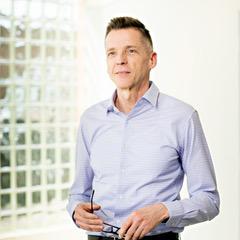
Steven Wilson is a guest author for the Center on Reinventing Public Education and former senior fellow.
For three decades, Steven has sought to spark change in urban public education—offering fresh ideas in his writing and research, shaping legislative change, and opening new schools that prove what’s possible. Most recently, Steven launched the National Summer School Initiative (NSSI) to pioneer a new model for accelerating learning and building teacher capacity—fast. Since its inception in 2020, NSSI has partnered with schools and districts to educate more than 100,000 students, including 31,000 in New York City in summer 2023.
Steven founded and built Ascend Learning, a growing network of tuition-free, liberal arts charter schools that today educates 6,00 students in Central Brooklyn. Ascend demonstrated the power of a warm and joyful school culture focused not on ensuring compliance but on fostering student agency. The Center for Research on Educational Outcomes (CREDO) at Stanford University identified Ascend a “gap-busting” network for its success in closing achievement gaps of race and income.
His first book, Reinventing the Schools: A Radical Plan for Boston, drove the development and passage of the Massachusetts charter school law. Learning on the Job: When Business Takes on Public Schools, won the Virginia and Warren Stone prize for an outstanding book on education and society. His new book on the future of school reform will be published in 2024.

For everyone committed to educational equality, an ambitious new analysis from researchers at Stanford and Harvard today brings grim news. In most states studied, the gap in student achievement between low-income and high-income districts grew dramatically between 2019 and 2023, in many cases by a half-grade or more.
In TNTP’s 2018 report The Opportunity Myth, the consequences of low expectations endemic in America’s classrooms are laid bare. Students’ lives, the authors wrote, “were slipping further away each day, unbeknownst to them and their families—not because they couldn’t learn what they needed to reach them, but because they were rarely given a real chance to try.
As the new school year approaches, big-city superintendents everywhere confront the chasm between their students’ needs and their districts’ capacity to meet them.
Three much-admired school networks in Indianapolis didn’t skip a beat in going virtual. At Purdue Polytechnic High School, which enrolls 442 students at two campuses in the city, remote learning kicked off this past Monday, after schools closed throughout the city last Friday afternoon.